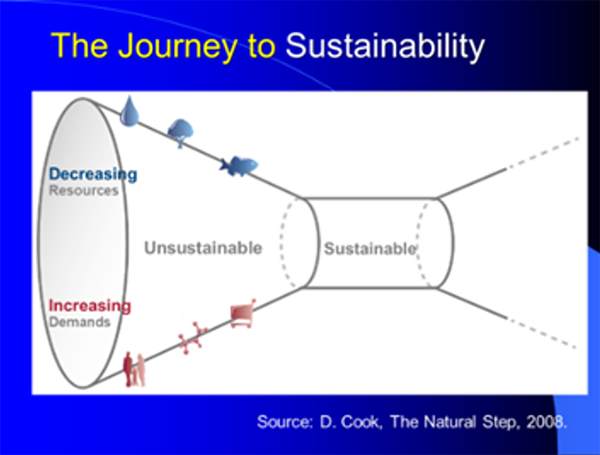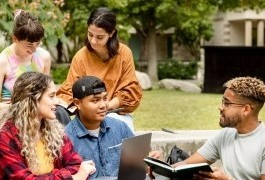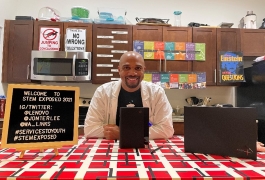The Importance of Asking Questions, Specifically, the "Why?"
In Brief
The following excerpt from Industry Matters highlights ACS past president Katie Hunt's experience in industry along with advice that she has for younger chemists. A former distinguished professor at the University of Virginia, Hunt emphasizes the importance of asking questions to determine your own interests and pursue your passions. She also discusses sustainability issues and possible solutions.
Having spent 30 years working at Rohm and Haas and Dow, and then at the University of Virginia, what advice do you have for young chemists debating whether to opt for a career in industry vs. academia?
This is a difficult question to answer without more information. When I advise someone, I first ask them to tell me what they like most about what they are doing and what they like least. This helps me narrow down the possibilities.
If you are thinking of academia–do you want to teach and do research, or just do research, or just teach? Do you want to write grants and publish, or not? There are different kinds of professorships, and different schools have different options.
If you are thinking of industry, do you like coming up with the ideas, or do you prefer reducing ideas to practice? Do you like working in the lab, or might you prefer sales and marketing? Or logistics? Or human resources? At a large company, there could be segmentation of these functions, while at a small company you may be responsible from start to finish.
But most importantly, look at the culture of the employer you are considering. Are you passionate about sustainability? If so, what is their sustainability plan? What are their goals and metrics? Do they just talk? Or do they walk the talk? Look on LinkedIn for people who work in jobs that look interesting to you and reach out to them for an informational interview (20 minutes MAX!). How did they get there? What does a typical day look like? Chatting with someone in a role like the one you are considering can give you valuable insight. Find out what skills are required, and if you do not have them, put a plan together to get them. And finally, tailor your résumé to the job.
I have been in both industry and academia and liked (loved) them both. I liked the people that I worked with, the positive impact of the work that I was doing, the fact that I got to learn and grow and move around to different jobs at different locations and to serve as an active ACS volunteer. At one point in my career, I designed my own job. It does not get much better than that. So, if you try something and you do not like it, or it does not fit your life situation, change it. You always have choices. You may not like them all, but you always have choices.
So, do your homework, get your priorities straight, and enjoy the journey. You CAN have it all, just not all at once.
What is the one personality trait that has been most instrumental in your career success?
I looked at a list of personality traits and selected openness, which was defined as: a degree of intellectual curiosity, creativity, and a preference for novelty. I love new ideas, new people, new places, and especially a brilliant brainstorming session but, not everyone does. Just remember, your greatest strength can be your greatest weakness. So, in my case, I must remember to be mindful of time and due dates and close strong.
What is your assessment, generally, of the chemical industry’s efforts to incorporate sustainability as a fundamental component of its operations?
Achieving sustainability is a journey, not a destination. That said, with increasing demands on decreasing resources, we are “opening the funnel” and becoming increasingly unsustainable.
For industry, what is needed is innovation via a concerted effort to integrate sustainability into every aspect of our companies from research and development through to deployment and distribution, including all our business practices from supply chain logistics to human resources and community outreach. These efforts can be force multiplied via collaborations across industry, academia, and national labs with government agencies, non-profits, foundations, and scientific societies.
We need education on sustainability topics like green chemistry and engineering, including tools like LCA (life cycle assessment) and risk assessment. These need to be integrated into the current curriculum, not added on as disassociated concepts. I have a chapter in Teaching and Learning about Sustainability by Irvin J. Levy and Catherine H. Middlecamp (2015).
This is more easily said than done. But one good place to start is with the 17 UN Sustainable Development Goals (SDGs). And, once again, ACS can play a role.
Paint a picture of a world where many of our sustainability issues are solved. What key enablers are necessary to create that world?
Standing in a sustainable future I am breathing fresh air, drinking refreshing water, eating delicious nutritious food, using renewable energy, while living in a healthy environment with a temperate climate, ample rainfall, and tremendous beauty and biodiversity. The key enabler is science literacy. The key actors are all of us. The place to start (or continue) is the UN Sustainable Development Goals.





